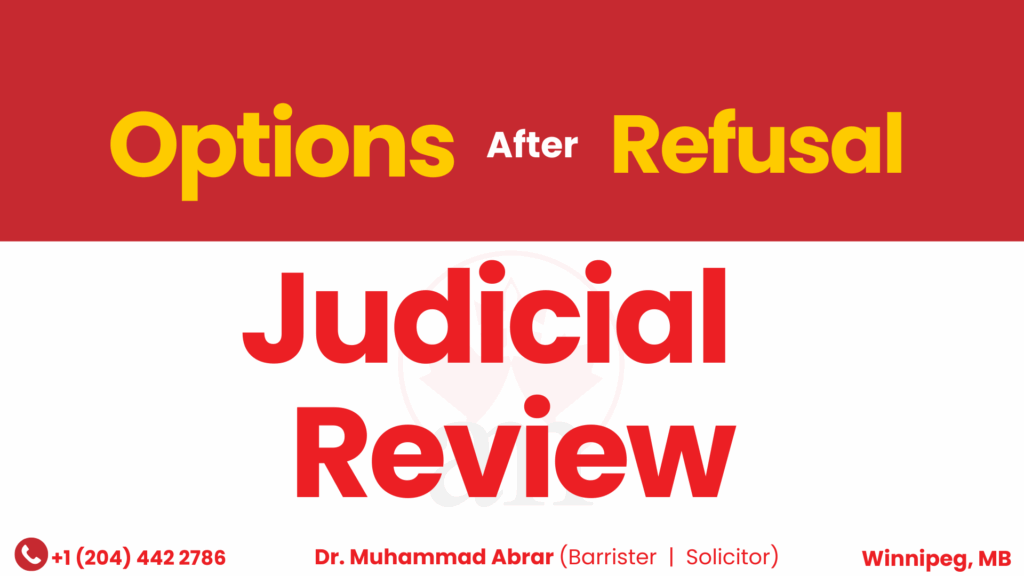
What Are Your Options After a Canadian Visa Refusal?
https://youtu.be/ne9LXIiu5rY?si=3p7xYWmmRSZ084hy Receiving a refusal on your Canadian visa or permit whether it’s a study permit, work permit, or visitor visa can feel discouraging. Many applicants reapply immediately, but doing so without addressing the core issue often leads to the same outcome. A stronger alternative in some cases is pursuing a Judicial Review in Federal Court. What is a Judicial Review? A Judicial Review is not a new application. Instead, it is a legal process where an independent Federal Court judge reviews the immigration officer’s decision to determine if it was: An error of law or fact A procedural error (e.g., unfair process) Unreasonable (e.g., refusal despite clear financial proof such as six months of bank statements) The judge does not look at new evidence. They only check whether the immigration officer: Followed Canadian law Acted fairly Made a reasonable decision based on the evidence provided Because of its complexity, a Judicial Review can only be argued by a licensed immigration lawyer. Deadlines to File 15 days: if the refusal was received inside Canada 60 days: if the refusal was received outside Canada These timelines begin from the date of refusal, so quick action is essential. Should You Consider Judicial Review? Judicial Review makes sense if your application was strong and well-documented but refused unfairly. If your refusal is due to weak documents or missing evidence, reapplying with better preparation may be more suitable. Next Steps If you’ve just received a refusal and want to understand your chances, book your first free in-person appointment with A&M Canadian Immigration Law Corporation. Our immigration lawyer can assess your case and guide you on whether a Judicial Review is the right option for you.





